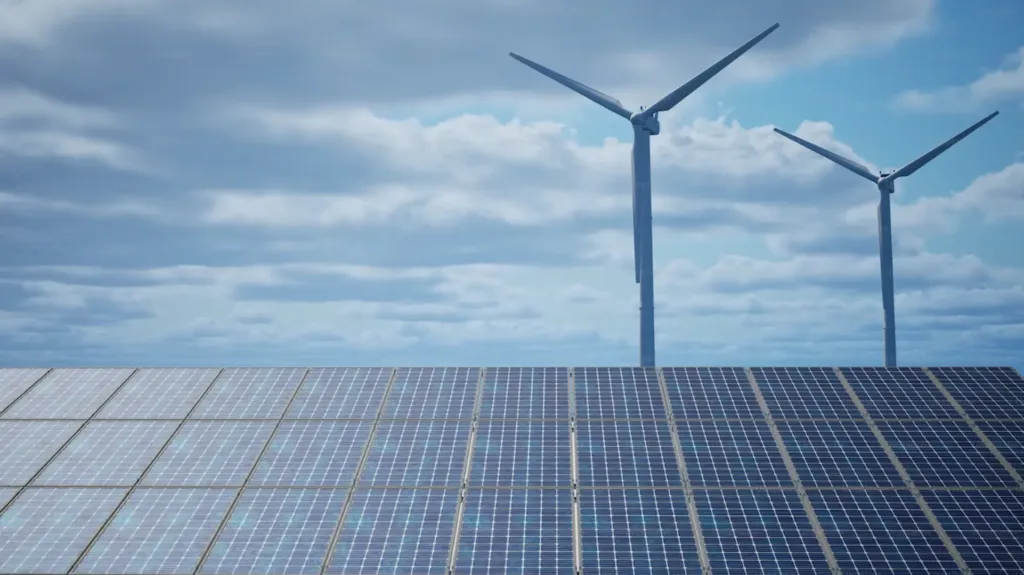.

Climate Change and Sustainability: An Urgent Call for Action
Climate change is one of the most pressing challenges of our time. It refers to the long-term shift in global or regional climate patterns, primarily due to human activities, especially the burning of fossil fuels, deforestation, and industrial processes. These activities have led to an unprecedented increase in the levels of greenhouse gases like carbon dioxide (CO2) in the atmosphere. As a result, the Earth’s temperature is rising, leading to profound consequences for ecosystems, weather patterns, and human societies.
The impacts of climate change are already visible. Glaciers are melting, sea levels are rising, and extreme weather events like hurricanes, droughts, and heat waves are becoming more frequent and intense. These changes not only threaten biodiversity but also human life and well-being. Coastal cities face flooding, agricultural yields are under pressure, and communities worldwide are forced to adapt or face devastating consequences. The urgency is clear: without collective and immediate action, the future of our planet and the stability of global systems are at risk.
On the other hand, sustainability represents a solution and a guiding principle to address the challenges of climate change. It refers to meeting the present’s needs without compromising future generations’ ability to meet theirs. Sustainability encompasses environmental, social, and economic dimensions, advocating for balanced growth that respects the Earth’s finite resources while ensuring equitable opportunities for all.
At the heart of sustainability is stewardship—taking responsibility for the natural world and using resources to maintain ecological balance. This includes transitioning from fossil fuels to renewable energy sources like solar, wind, and hydropower, reducing waste, adopting circular economy principles, and protecting forests and oceans that act as carbon sinks. The aim is not just to mitigate the damage we’ve caused but to reimagine how we live, work, and interact with the planet in ways that restore and preserve the environment.
Sustainability also calls for systemic changes in how societies function. It requires rethinking urban planning to reduce pollution, investing in green infrastructure, and creating policies that incentivize businesses to adopt sustainable practices. Furthermore, it emphasizes the importance of individual actions—reducing personal carbon footprints, making conscious consumer choices, or advocating for policies that prioritize the environment. Everyone has a role to play in building a more sustainable future.
One critical aspect of addressing climate change through sustainability is the shift to a low-carbon economy. This transition involves reducing carbon emissions across the energy, transportation, and agriculture sectors. For example, electric vehicles (EVs) are rapidly replacing fossil-fuel-powered cars, renewable energy is gaining traction as coal plants are phased out, and sustainable agriculture practices are emerging to reduce the environmental impact of food production. These efforts are vital in stabilizing global temperatures and avoiding the most catastrophic consequences of climate change.
Education and awareness are also key components of sustainability. To combat climate change, people must understand the science behind it and the solutions available. Governments, organizations, and individuals need to be informed about sustainable alternatives, the potential benefits they can bring to the planet, economic growth, and job creation. For instance, the renewable energy sector is expected to create millions of jobs globally, contributing to a green economy that benefits both people and the environment.
The transition to sustainability isn’t just about reducing harm—it’s about creating a better, more equitable world. Investing in sustainable technologies and policies can improve public health, protect vulnerable populations, and preserve the planet for future generations. Sustainability promotes inclusivity and social justice, recognizing that the effects of climate change are not evenly distributed. Developing countries, which have contributed the least to greenhouse gas emissions, often suffer the most from its impacts. Sustainable solutions must, therefore, consider global equity and the need for international cooperation in the fight against climate change.
Governments and businesses have a pivotal role in driving sustainable initiatives. The Paris Agreement, for instance, set a global framework to limit warming to well below 2°C above pre-industrial levels, with an aspiration to limit it to 1.5°C. This requires countries to commit to reducing emissions and developing national plans for climate action. Meanwhile, corporations are increasingly recognizing the importance of sustainability for long-term success. Many companies are integrating environmental, social, and governance (ESG) principles into their operations, aiming to minimize their ecological footprint while meeting the demands of consumers and investors who prioritize sustainability.
However, sustainability isn’t solely the responsibility of governments and corporations—it’s also an opportunity for individuals to make a difference. Simple actions like conserving energy, reducing waste, and choosing sustainable products can have a significant collective impact. Advocacy and civic engagement are equally important; pushing for systemic change and supporting policies that advance environmental protection can accelerate the transition to a more sustainable future.
Therefore, climate change is an urgent crisis that demands immediate and sustained action. Sustainability offers a roadmap to mitigate its effects and build a world that thrives within the planet’s ecological limits. By rethinking how we use resources, fostering innovation, and prioritizing equity, we can combat the most severe impacts of climate change and ensure a healthy, prosperous future for generations to come. This requires collaboration across all sectors of society—governments, businesses, communities, and individuals—working together to protect our planet and build a resilient, sustainable future.
The time to act is now. Every effort counts, and our choices today will define tomorrow’s world. Through sustainable practices, we can slow down and reverse the damage caused by climate change, creating a legacy of environmental stewardship and global responsibility that will shape the future for the better.
For instance, Canada continues to take significant strides in environmental policy as global awareness of climate change grows. In 2024, the country has implemented several ambitious climate change initiatives, focusing on reducing carbon emissions, investing in green energy, and promoting sustainable industries. These efforts protect the environment and position Canada as a global leader in the fight against climate change.
Reducing Carbon Emissions: A National Priority
Canada’s government has made carbon emission reduction a top priority. With targets aligned with international agreements like the Paris Climate Accord, the nation aims to reach net-zero emissions by 2050. In 2024, stricter regulations have been introduced to reduce emissions from major industries, including oil and gas. These regulations encourage companies to adopt cleaner technologies and greener practices.
In addition, Canada has implemented carbon pricing, requiring businesses to pay for their carbon emissions. This policy incentivizes companies to invest in renewable energy sources and energy-efficient technologies, ultimately helping the country meet its ambitious climate goals.
The carbon pricing model has encouraged businesses to innovate, pushing them toward greener alternatives and creating new opportunities for sustainable growth.
Investing in Green Energy: A Growing Sector
Alongside its carbon reduction efforts, Canada is rapidly expanding its green energy sector. Investments in solar, wind, and hydroelectric power have significantly increased, helping to phase out reliance on fossil fuels. In 2024, the country has seen a substantial rise in green jobs due to these investments.
Government programs now incentivise individuals and businesses to adopt renewable energy sources, making them more accessible and affordable.
Canada’s clean energy investments combat climate change and stimulate economic growth. By prioritizing green energy, the country creates jobs, reduces environmental impact, and leads the global energy transition.
Promoting Sustainability Across Industries
Canada’s climate change policies extend beyond energy and emissions. Industries like agriculture, construction, and transportation are transforming to become more sustainable. Government programs encourage adopting environmentally friendly practices, such as using sustainable building materials and reducing water usage in agriculture.

Canada’s government has also committed to protecting natural habitats and wildlife through conservation programs.
These efforts highlight Canada’s comprehensive approach to climate change. Canada is a leader in global climate action by addressing multiple sectors and focusing on long-term sustainability.


Comments are closed.